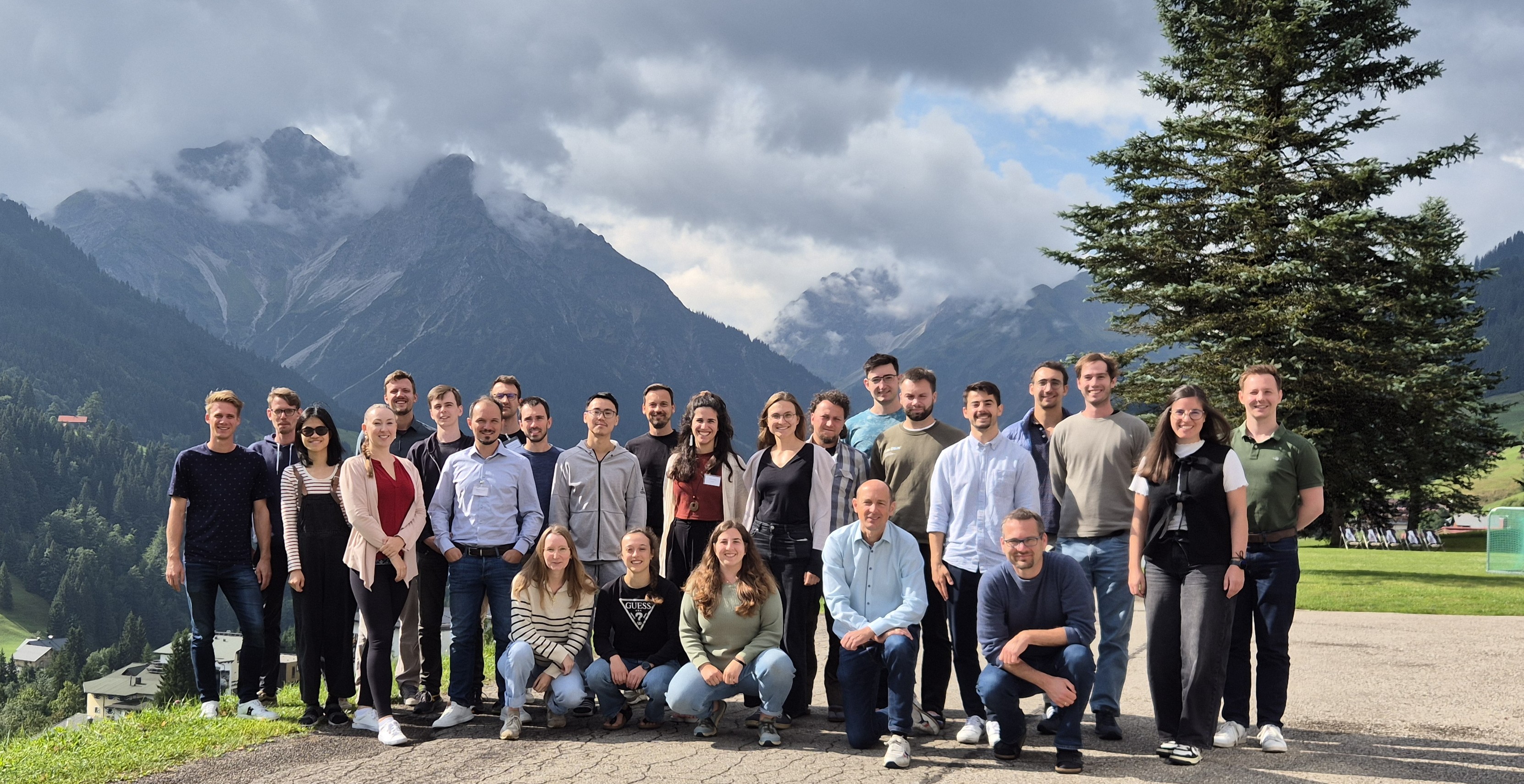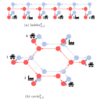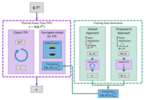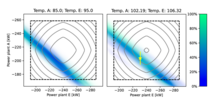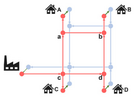M.Sc. Andreas Bott

State estimation in distributed heat networks
fax +49 (0) 6151 16-21712
S3|10
Landgraf-Georg-Str. 4
64283 Darmstadt
Research Interest
- 4th generation district heating
- Learning-based hybrid models
- State estimation and generation optimisation
Research Project:
It is anticipated that district heating networks will undergo a substantial transformation in the forthcoming years. The conventional approach to district heating involves distributing heat from a single, high-temperature heating plant to dispersed consumers through a mostly tree-like network. Upcoming, so-called 4th generation district heating networks, on the other hand, are characterised by lower supply temperatures, distributed and flexibly operated heat sources, and loop-based grid layouts. This system transition necessitates novel approaches to address grid operation tasks.
A particular challenge in this endeavour is the lack of real-time consumer demand measurements. The acquisition of real-time consumption data is costly, both financially and in terms of organisational resources. If these measurements are not available, the resulting thermal demand uncertainty has to be reflected in the operation algorithms. Moreover, since the physical equations describing heating grids are nonlinear, mapping the demand's uncertainty onto the grid states can result in multimodal probability distributions, even if the initial demand uncertainty has a simple Gaussian form. It is, therefore, infeasible to find adequate parametric representations for the grid state's uncertainty.
Therefore, we inestigate the utilisation of learning-based hybrid models to model state uncertainites in state estimation and heating plant control tasks for 4th genertion district heating systems. In particular, we employ surrogate models that approximate thermal power flow calculations, i.e., the mapping from the thermal powers and feed-in temperatures at producers and consumers onto the grid states. The possibility of rapid evaluation of these surrogate models then enables the usage of classic sampling-based stochastic algorithms, omitting the necessity for parametric uncertainty representations.
The reaserch in this field encopases three reasearch strands:
- the efficient generation of training samples for the surrogate models;
- hybrid models for state estimation in district heating grids;
- hybrid models to optimise the power plant's set-points.
These hybrid models allow for estimating the probability of grid constraint violations as well as deducing optimal responses to minimise this probability. The approaches have low computation times, which allows them to be used in online operational settings. Overall, the proposed hybrid models allow the utilisation of the flexibility of 4\Th generation district heating networks without requiring a complete set of measurements first.
Open theses
Unfortunately, there is nothing available in the moment.
Short Bio
since 2020: PhD student at EINS
2016 - 2019: M.Sc. Energy Science and Engineering at TU Darmstadt
2012 - 2016: B.Sc. Physics at TU Darmstadt
Publications
[Journal]
Andreas Bott, Mario Beykirch, Florian Steinke:
Efficient training of learning-based thermal power flow for 4th generation district heating grids.
In: Elsevier Energy 318 , P. 134661, 2025
[PhD thesis]
Andreas Bott:
Learning-based Hybrid Models for Operating 4th Generation District Heating Systems.
In: Darmstadt, Technische Universität Darmstadt, 2025
[Conference]
Andreas Bott, Kirill Kuroptev, Florian Steinke:
Stochastic Optimal Control for Nonlinear Systems Based on Sampling & Deep Learning.
In: 63rd IEEE Conference on Decision and Control (CDC), Milano, Italy, 2024
[Journal]
Mario Beykirch, Andreas Bott, Tim Janke, Florian Steinke:
The Value of Probabilistic Forecasts for Electricity Market Bidding and Scheduling Under Uncertainty.
In: IEEE IEEE Transactions on Power Systems 39 , P. 6986-6997, 2024
[Journal]
Andreas Bott, Tim Janke, Florian Steinke:
Deep learning-enabled MCMC for probabilistic state estimation in district heating grids.
In: Elsevier Applied Energy 336 , P. 120837, prePrint, 2023
[Conference]
Andreas Bott, Pascal Friedrich, Lea Rehlich, Florian Steinke:
Model Reduction for Heat Grid State Estimation.
In: 2021 IEEE PES Innovative Smart Grid Technologies Europe (ISGT Europe), virtual Conference, 2021
[Conference]
Andreas Bott, Alexander Matei, Florian Steinke, Stefan Ulbrich:
Methodenbaukasten für Flexible Wärmenetze der Zukunft.
In: Konferenzreader Digitalisieren, Sektoren koppeln, Flexibilisieren: Systemische Integration der Bioenergie und weiterer erneuerbarer Energien in Gebäuden & Quartieren, virtual Conference, 2020

